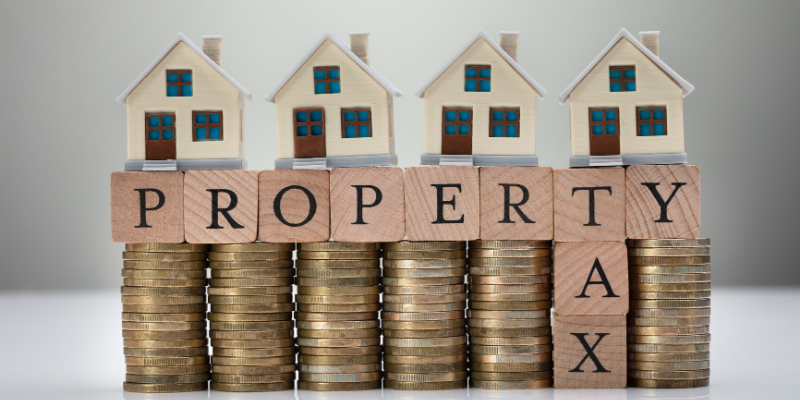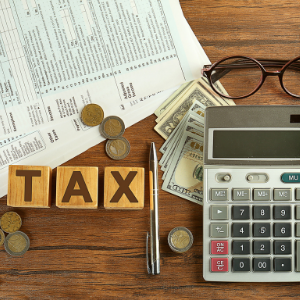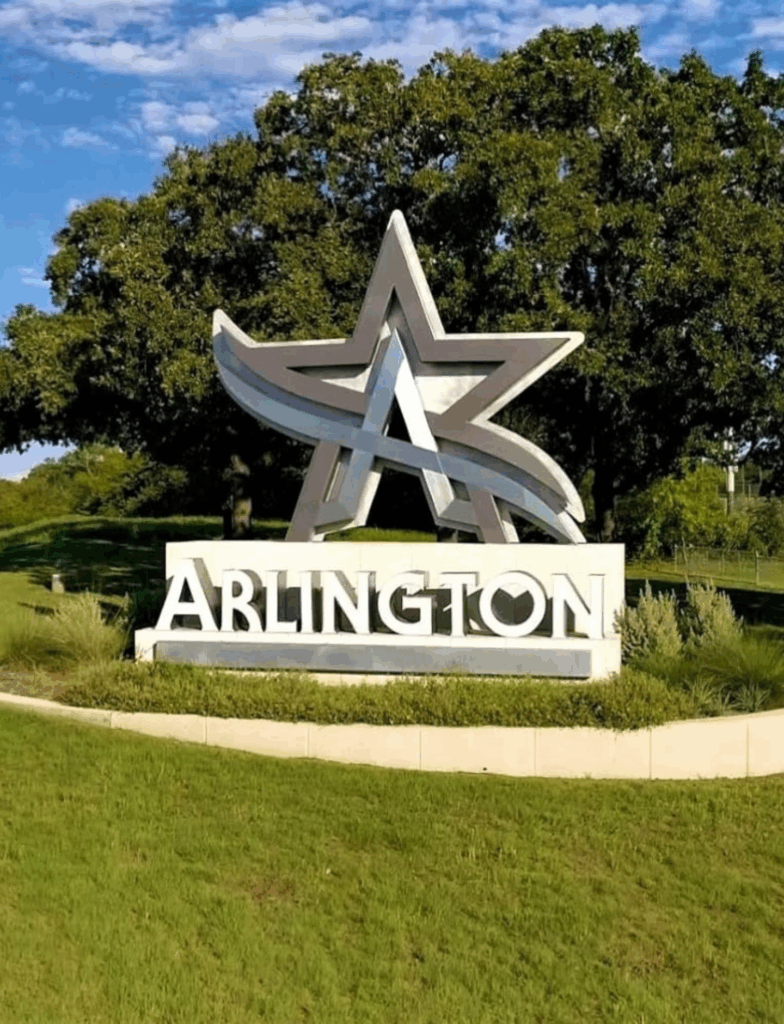
With the approval of the fiscal year 2026 Tarrant County rate, Arlington, TX, property owners need to understand what this means for them. Property taxes are a significant component of homeownership costs, directly impacting budgeting and investment strategies. This updated tax rate, reflecting local economic conditions and funding needs, is crucial for both current homeowners and potential buyers. In this article, we’ll delve into the specifics of the new rate, compare it to previous years, and discuss its implications for Arlington residents, ensuring you stay informed and prepared for upcoming fiscal changes.
Key Highlights
- The FY26 property tax rate in Arlington aims to balance the city’s budget with essential public services.
- The new rates reflect community needs and economic demands, integrating public feedback.
- Property taxes have significant effects on residents’ housing costs and public service funding.
- Tarrant County’s historical tax trends indicate adjustments aligned with economic shifts.
- Understanding tax implications is crucial for property owners to navigate fiscal changes effectively.
Understanding the Tarrant County Property Tax Landscape
The Tarrant County property tax environment is a layered arena that significantly affects residents’ lives. With the latest Tarrant County tax rates for FY26 now approved, many are eager to understand how historical trends influence the current and future landscape. From the role of the appraisal district to the impact on property owners, these elements compose a complex picture of the county’s taxation framework. This exploration will delve into the historical trends in the county and examine how property tax policies impact residents, providing insights into the changes experienced across communities.
Impact of Property Taxes on Residents

Property taxes in Tarrant County play a significant role in shaping both individual finances and the community as a whole. For Arlington homeowners, annual property tax assessments determine how much they’ll owe, directly affecting housing affordability and budgeting decisions. Each year, the Tarrant Appraisal District evaluates properties to establish fair market values, which serve as the foundation for tax calculations. However, these appraisals can sometimes result in disputes or appeals, especially when unexpected increases impact household budgets.
Beyond personal expenses, property tax revenue funds essential public services, including schools, infrastructure, and emergency response programs. These services help maintain Arlington’s strong community standards and support the city’s long-term growth. While higher property taxes can feel burdensome, they also ensure that Arlington neighborhoods continue to thrive through improved amenities and reliable public programs.
Eligible homeowners can benefit from property tax exemptions and relief programs, such as homestead or senior exemptions, which help reduce their overall property tax costs. Staying informed about local tax policies and updates from the Tarrant County Appraisal District enables residents to understand their financial responsibilities and potential savings better.
Ultimately, understanding how property taxes affect both individual households and community well-being allows Arlington residents to make informed decisions, balancing financial obligations with the benefits of living in a well-funded, high-quality environment.
The Approved Tax Rate for FY26 in Arlington, Texas
The Arlington City Council has recently approved the new property tax rate for fiscal year 2026, which will affect residents across Tarrant County. With a comprehensive evaluation by the county commissioners, this updated rate aims to balance the city’s budget while supporting essential services. Key details of the adopted tax rate highlight its significance for property owners, who will experience changes in their financial commitments. As homeowners assess these financial implications, understanding how Arlington’s approved tax rate shapes their annual property taxes becomes crucial in navigating future fiscal planning.
Key Details of the Adopted Rate in Arlington, TX
The approved tax rate for FY26 in Arlington represents a calculated decision by the city council to address current economic demands and community needs. This adopted rate serves as a testament to the city’s budgetary goals, striking a balance between public service funding and manageable tax obligations for residents. Key elements involve carefully considering the city’s revenue requirements to ensure adequate support for infrastructure, education, and public safety.
The adoption of this rate also reflects the insights gained from public notices and hearings, during which community members had the opportunity to voice their concerns and provide suggestions. By incorporating feedback, the city council aims to make informed decisions that support Arlington’s growth while addressing the pressing financial concerns of property owners.
Moreover, this new rate underscores the strategic direction of ensuring that all city services are adequately funded without imposing an undue financial burden, presenting a clear commitment from city officials to transparent governance and community engagement.
As homeowners assess these financial implications, some may find the new rates stretching their budgets further than expected. In such cases, Texas Cash House Buyer offers a practical solution: sell your Arlington home for cash and eliminate the burden of ongoing property taxes, maintenance, or mortgage stress.
Financial Implications for Property Owners in Arlington, TX

The Arlington City Council recently approved the Arlington property tax rate for FY26, which has profound impacts for Arlington residents, homeowners, and investors. Taxes for which residents will qualify include modest tax relief and small increases, determined by individual property appraisals and applicable exemptions. All residents, especially homeowners, should be emotionally charged and target-driven to actively follow the appraisal processes in Tarrant County, as they will be pertinent to each individual’s tax situation, as well as their budget planning.
The remainder of the community will appreciate the property tax rate as a politically negotiated rate that achieves the city’s budgetary needs while responding to the community’s expectations. In fulfilling its civic duties related to city planning, Arlington will be responsive to public requests for education, public infrastructure, and public safety. Each property owner, however, has the obligation to ensure that their financial plans account for a change in their anticipated annual tax payment on the property. In making these plans, residents will respond to the pressure from the city to balance taxpayer-supported services with the city’s development.
Higher anticipated annual tax payments further threaten the core of the budget supporting services. Homeowners, long-time property investors, and other community members will focus on affordable public safety. Understanding the tax benefits, as well as the appeal and relief processes, is necessary to ward off financial attacks from COVID-reinforced property operation and maintenance expenses.
In conclusion, to manage the changes in property tax for FY26 for the Dallas County portion of Arlington, TX, it is necessary to be proactive. Attending meetings, checking the county website, and discussing tax appeals, management, and collection with other property owners will help property owners manage their financial obligations and contribute to achieving the economically healthy community desired for Arlington.
Applying the New Tax Rates in Arlington, TX: What to Expect
With the new property tax rates approved for FY26 in Tarrant County, residents and property owners may wonder how these changes will affect their personal budgets and local community services. As Arlington’s city council sets these tax rates, the goal is to balance increasing public service demands with manageable costs for residents. Understanding how these tax rates directly affect property tax obligations and the broader implications for public infrastructure and education funding is crucial. The adjustments have a multifaceted impact, potentially altering household expenses and public services, reflecting the county’s fiscal strategies.
How Tarrant County’s Changes Affect You
The approved FY26 property tax rate in Arlington, TX, will have clear impacts at the individual homeowner level, as well as on the community as a whole. Understanding the new rate’s impact on annual property appraisals will be an essential part of an individual property owner’s financial strategy in Tarrant County. Since property appraisals determine your taxable value, any changes in any of the rates or in the overall valuations will mean changes in property taxes that a homeowner will be obligated to pay at the end of every year.
These changes do not end on the personal level only. They also affect the community at large. Key services provided to the community, such as Arlington ISD schools, Infrastructure services, and Public Safety services, all rely on funded tax revenues. The tax rate will directly impact them. Residents will not be financially overburdened, while the revenue will be sufficient to supply the level of services provided. This balance is one of the many aspects the Arlington City Council reviewed and evaluated during the public hearings and discussions held during the consultation periods.
The amount a homeowner will need to pay will vary, depending on the property’s appraisal amount and the exemptions for which they qualify. Streamlining the available taxes and determining what tax reliefs can be afforded depends on the individual’s understanding of such concepts, which is why relief programs have been developed to promote financial literacy.
In the end, the new Arlington property tax rate may appear, on the surface, as merely a technical policy shift, but its consequences affect every family. Improving the quality of life across Tarrant County through better education and enhanced local services strengthens the community and its infrastructure, making it far more sustainable for the years to come.
If you’re ready for a fresh start, Texas Cash House Buyer can help you sell your house fast in Fort Worth, Burleson, and North Richland Hills. Their fair, no-obligation cash offers give homeowners flexibility, especially when facing rising costs or unexpected financial challenges.
Finding More Information and Resources

Many reputable resources exist if you need to understand the Arlington, TX, property tax rate and its implications for your finances. Begin with the Tarrant County property tax records, which provide the latest documentation, including tax rate history, recent changes, and current appraised values. Keeping records of your property helps you assess how annual property appraisals determine tax liabilities.
Federal tax data and Arlington city pages provide records of tax policies and other relevant guidance, answering the most common property expense and investment concerns about the property tax rate for FY26. These pages, although intended for property and land planners, effectively guide owners in managing their property expenses.
For specialized assistance, the county tax office and property appraisal district offer consultations. For the public, records of city council meetings and other public documents provide insight into projected spending for each community, including property taxes.
Any court decision and accompanying public documents are essential because they reveal how a court’s ruling can influence an area’s property assessments within that region. If you do the necessary follow-up work, you can monitor any modifications that might impact your residence’s evaluation or the tax liability on it.
In closing, the property tax rate in Arlington for fiscal year 2026 is a direct indication of the city’s responsible, community-focused planning. Property owners can monitor their finances, understand their tax responsibilities, and actively support the city’s growth and stability, and, therefore, are better equipped for Arlington’s considerable economic prospects.
Texas Cash House Buyer makes selling simple by offering fair cash offers, flexible closings, and a stress-free way for homeowners across Tarrant County to move forward—no repairs, no commissions, and no waiting. Curious how we can help? Contact us at (817) 587-8108 today!
Frequently Asked Questions
What is the FY26 property tax rate for Arlington, TX, and how does it impact residents?
The FY26 property tax rate in Arlington, approved by the City Council, balances the city’s budget with essential public services. It affects residents by influencing their property taxes and their financial planning strategies.
How do historical tax trends in Tarrant County affect the current property tax rates?
Tarrant County’s historical tax trends reflect shifts in the economy and population growth. The adjustments align with these changes, impacting public services and property owner obligations across the region.
Who plays a crucial role in determining property values for tax purposes in Tarrant County?
The county appraisal district ensures accurate property appraisals that reflect market values. Their assessments influence tax obligations and can lead to disputes and appeals when valuations change.
What steps are involved in disputing a property tax assessment in Tarrant County?
If a resident disagrees with their property appraisal, they can appeal the assessment through the district’s process. Accessing official documentation and seeking a reassessment are key steps in this procedure.
How can Arlington residents stay informed about property tax changes?
Residents can access county records and online portals for tax information and resources. Engaging with public notices, attending city council meetings, and reviewing appraisal reports can help keep them informed.
Helpful Arlington Blog Articles
- Can Heir Property Be Sold in Arlington, TX
- Do I Need a Lawyer To Sell My House in Arlington, TX
- How Long To Move Out After Foreclosure Auction in Arlington, TX
- Average Cost to Sell a House in Arlington, TX
- Fun Facts About Arlington, TX
- Arlington, TX Property Tax Rate
- Free Things to Do in Arlington, TX
- Arlington, TX Neighborhood Map
- Tax Implications of Selling Home in Arlington, TX
- Paint My House in Arlington, TX to Sell It?
- Selling Rental Property at a Loss in Arlington, TX
- Selling an Old House in Arlington, TX?
- Can I Sell My House in Arlington, TX, with a HELOC?
- Arlington, TX Property Managers
- Best and Worst Neighborhoods in Arlington, TX

